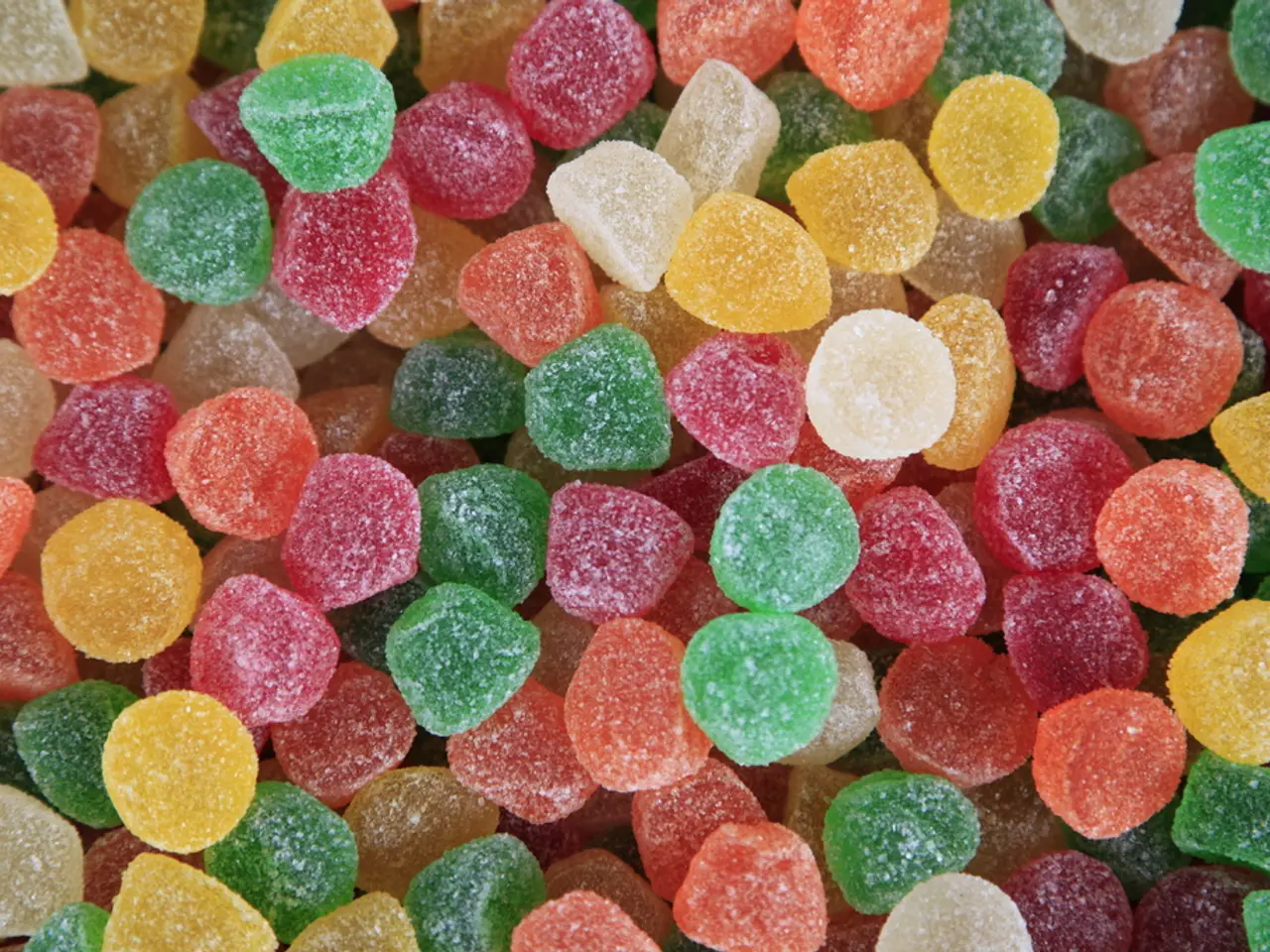Optimal Sugar Choices for Crafting your DIY Kombucha at Home
Kombucha, the fermented tea beverage, is a popular health drink known for its probiotic properties. But have you ever wondered about the role of sugar in kombucha brewing? This article will guide you through the different types of sugars suitable for kombucha and their effects on the brewing process.
The Importance of Sugar in Kombucha
Sugar is crucial for making kombucha as it feeds the kombucha mother (SCOBY), providing energy for fermentation. During this process, sugar transforms into organic acids, such as acetic acid, and carbon dioxide, giving kombucha its natural effervescence.
Sugar and Kombucha Fermentation
The amount of sugar added during fermentation does not directly affect the amount of sugar remaining in the bottle; the residual sugar depends mainly on the length of fermentation and its strength. However, it's essential to maintain a minimum quantity of sugar for fermentation: at least 50 grams per liter of tea.
Choosing the Right Sugars for Kombucha Brewing
While any sugar or sweetener can be used during the flavoring stage, the most recommended sugars for kombucha brewing are white (cane) sugar, coconut sugar, and honey, each with distinct advantages and disadvantages.
White (Cane) Sugar
White sugar is the standard and safest choice for beginners or those seeking steady results. It reliably supports SCOBY yeast and bacteria growth and produces a well-balanced, stable kombucha. However, it lacks minerals and provides "empty" calories, less nutritional value.
Coconut Sugar
Coconut sugar brings mineral benefits and flavor complexity but risks overstimulating fermentation if used excessively. Its mineral content may overstimulate yeast, causing overactive fermentation and sourness if used in large amounts.
Honey
Honey provides a unique kombucha variant (Jun) with distinct flavors. It contains antimicrobial compounds that may affect fermentation selectively. However, it is more expensive, not all honeys ferment equally, and using only honey requires careful adaptation of the SCOBY.
Additional Notes
White sugar is the most reliable choice for beginners or those seeking consistent results because it reliably supports SCOBY yeast and bacteria growth. Coconut sugar’s mineral content can be beneficial but should be used sparingly to avoid overstimulation of fermentation leading to rapid acidification and possible SCOBY stress or break down. Honey-based kombucha (Jun) requires some adjustments, such as starting with half white sugar and half honey and gradually increasing honey to allow the SCOBY to adapt.
Other sugars like brown sugar, maple syrup, or molasses are less common and might introduce unpredictable results or unwanted flavors due to additional compounds and minerals. Artificial sweeteners (erythritol, xylitol, aspartame) are unsuitable for fermentation but can be used to sweeten kombucha during flavouring.
Conclusion
For standard kombucha, white (cane) sugar offers the most consistent and balanced fermentation. Coconut sugar brings mineral benefits and flavor complexity but risks overstimulating fermentation if used excessively. Honey provides a unique kombucha variant (Jun) with distinct flavors, requiring adaptation and care in use. This guidance helps brewers choose sugars balancing fermentation health, flavor, and desired kombucha characteristics.
- For those seeking consistent results in kombucha brewing, white sugar is the most reliable choice, as it reliably supports the growth of the kombucha mother (SCOBY) and produces a well-balanced, stable kombucha.
- Coconut sugar can bring mineral benefits and flavor complexity to kombucha, but its excessive use may overstimulate fermentation, leading to rapid acidification and potential stress or breakdown of the SCOBY.




